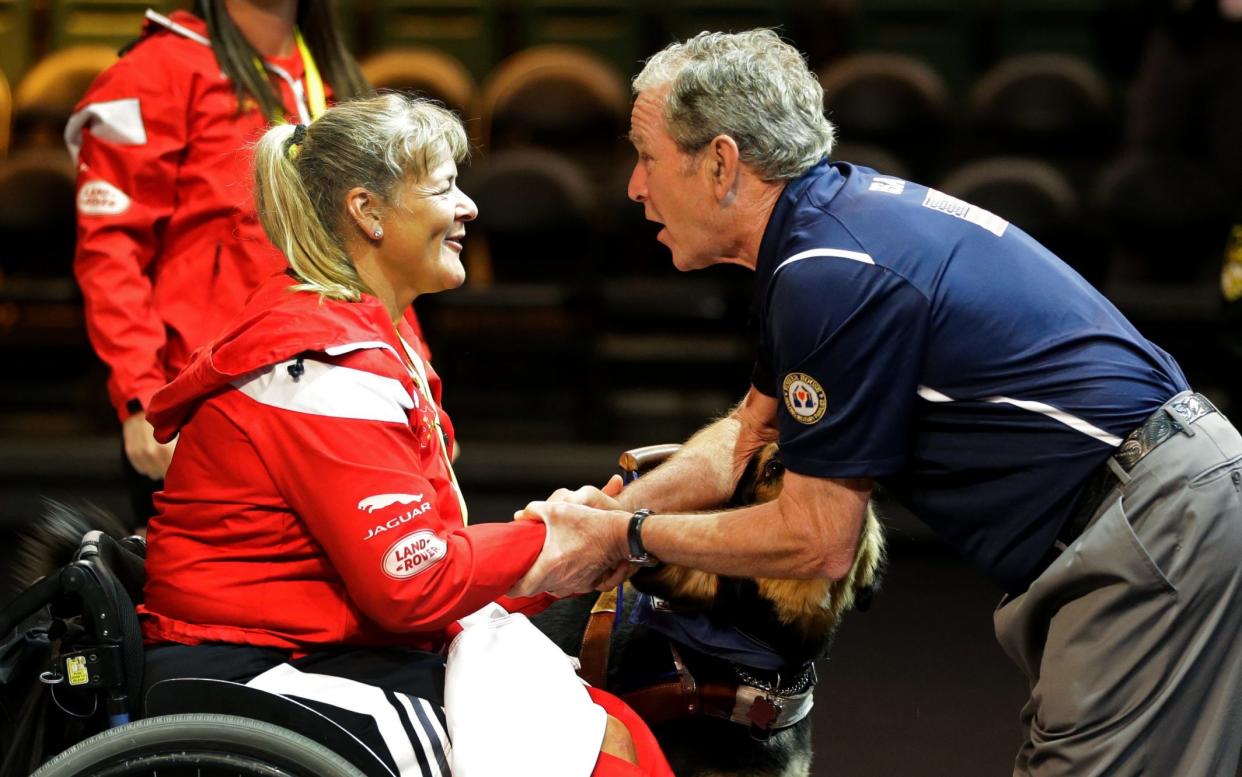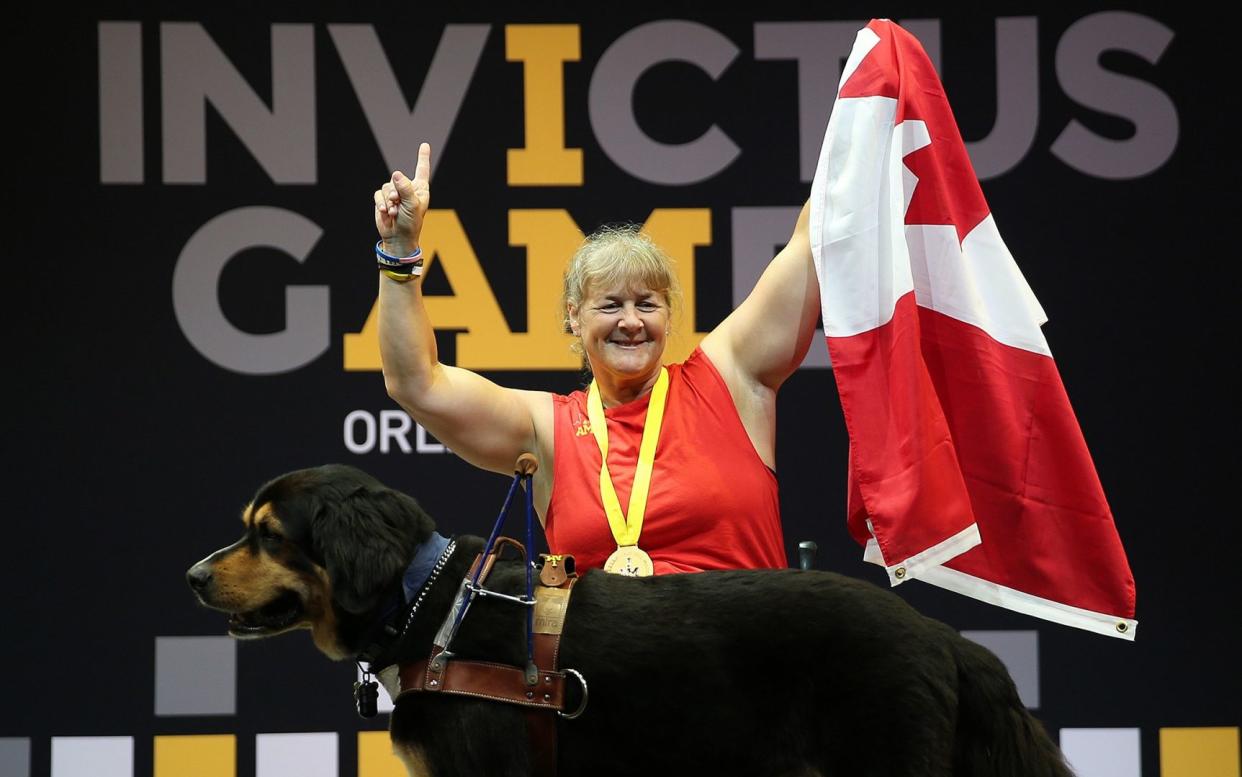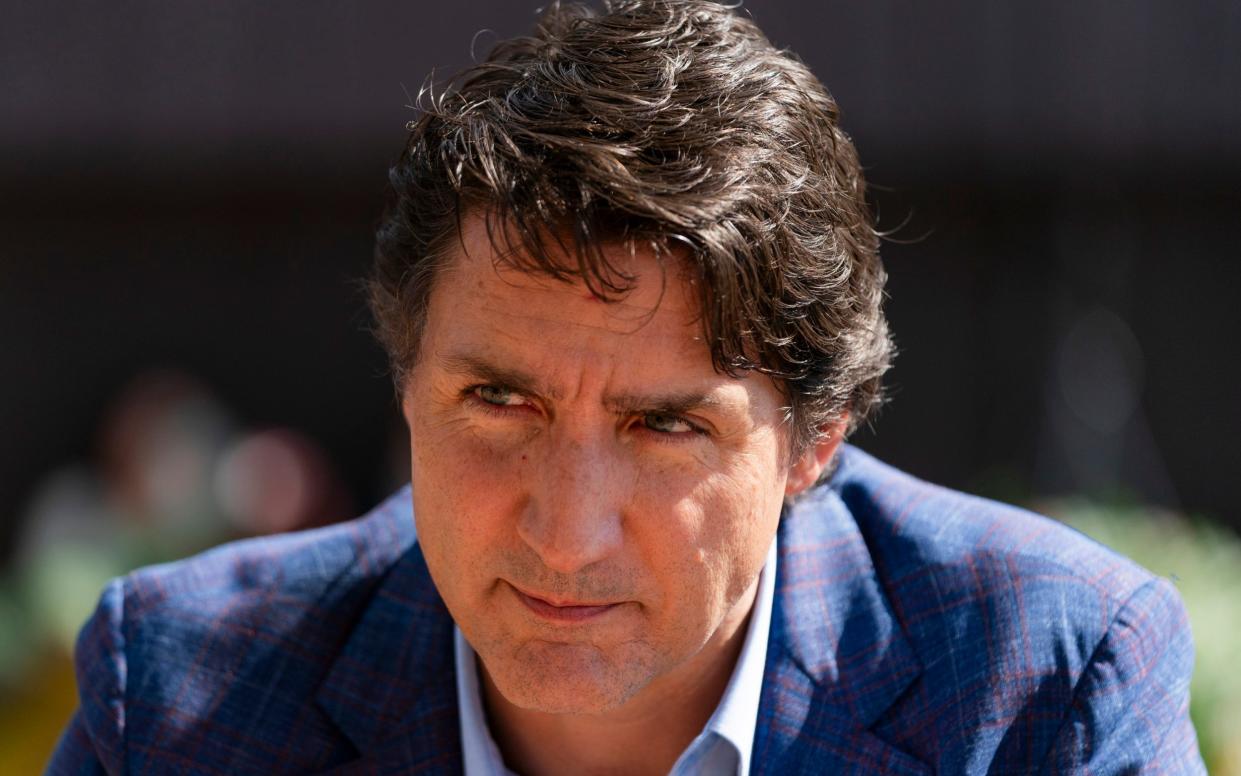Canadian Paralympian: I asked for a disability ramp - and was offered euthanasia

A Canadian army veteran and former Paralympian said she was offered euthanasia after enquiring about installing a disabled lift in her home.
Christine Gauthier, who served 10 years in the Canadian armed forces and represented her country in the 2016 Paralympic Games, was told she had the “right to die” by a caseworker from Veterans Affairs Canada (VAC), a government agency.
The comment, said to have been made last year, followed the introduction of new laws by Justin Trudeau’s Liberal Party in 2016 legalising euthanasia for terminally ill Canadians.
Speaking to The Telegraph, Ms Gauthier, who requires a wheelchair because of irreversible injuries from her time in the military, said after initially submitting her request for the disabled equipment in 2018, in 2022 a VAC employee “called me to make a point of where we’re at [with the lift]”.
She continued: “And I said, I just can’t keep going like this. I can’t keep living like this. Like, this has to be done. This has to be resolved.”
“And the person stated, ‘You know, Madame Gauthier, if you really feel you can’t go on like this, if you feel that you can’t do it anymore, you know, you have the right to die?’”

The veteran said she was shocked at the comments, exclaiming: “I can’t believe after all of this time, not only will you not give me the equipment I need to live, but you will help me die?
“It’s really hard to understand this when you feel, or may be blinded enough, or stupid enough, to believe that your government is there to help you, and not to end your life because you’re becoming too pricey, or too much of a problem.”
An investigation by VAC found four cases “isolated to a single employee who is no longer an employee of the Department” of assisted dying being brought up inappropriately to veterans.
In 2021, more than 10,000 people died by assisted suicide in Canada, representing 3.3 per cent of all recorded deaths in the country.
A projection by Canada’s Euthanasia Prevention Coalition estimated that 13,500 people chose to end their life with government help in 2022.
Responding to Ms Gauthier’s revelations, Mr Trudeau told reporters at a press conference in September 2022: “We are following up with investigations and we are changing protocols to ensure what should seem obvious to all of us: that it is not the place of Veterans Affairs Canada, who are there to support those people who stepped up to serve their country, to offer them medical assistance in dying.”
Legislators in the UK are considering a Private Member’s Bill, currently in the House of Lords, which would legalise euthanasia.

Next year, the eligibility requirements for those who qualify for assisted dying in Canada is set to be expanded to include those suffering with mental health disorders.
The expansion was due to come into effect in March, but the government delayed its implementation until March 2024 to allow for consultation.
Dr Konia Trouton, an advocate for euthanasia and a physician who administers and assesses assisted suicides, supported the expansion of the legislation.
She told The Telegraph: “When the legislation came through in assisted dying, it was the same year that we got mifepristone in Canada, so it’s the drug that people can take a tablet for abortion. So my skills and need for doing surgical abortion was limited.
“And I thought, ‘Oh, there’s an interesting change in the law happening, which is also about social justice, which is also about a person’s autonomy. I wonder if I might like to get involved in that’, and I did right from the beginning.”
The physician was not concerned about the expansion of the euthanasia legislation to include disorders such as depression.
“Having watched over the last couple of years how people with an incurable illness, disease or disability, that’s not terminal, access Maid [Medical Assistance in Dying], I’m quite reassured that the level of scrutiny and the level of assessment is very tight,” she said.
Fashion house ‘promoted euthanasia’
Last year, La Maison Simons, a Canadian fashion company, was criticised for an advert that starred a chronically ill woman who opted for assisted suicide, with some claiming it promoted euthanasia.
The advert featured Jennyfer Hatch, who suffered from Ehlers-Danlos Syndrome, discussing the end of her life while music played and she was surrounded by images of nature.
She said: “When I imagine my final days I see bubbles, I see the ocean, I see music. Even now as I seek help to end my life, there is still so much beauty, you just have to be brave enough to see it.”
The video, released on YouTube, featured the message: “For Jennyfer: June 1985 to October 2022.”
Hatch told CTV, the Canadian broadcaster, in June 2022: “I thought, ‘Goodness, I feel like I’m falling through the cracks so if I’m not able to access health care am I then able to access death care?’ And that’s what led me to look into medical assistance in dying and I applied last year.”
Peter Simons, the company’s former chief executive, defended the film.
In a video interview accompanying the advert, he said: “It’s obviously not a commercial campaign. It’s more an effort to use our freedom, our voice, and the privilege we have to speak and create every day in a way that is more about human connection.”
‘Complex and deeply personal issue’
In December 2022, David Lametti, Canada’s justice minister at the time, told legislators: “There is no doubt that medical assistance in dying (MAID) is a complex and deeply personal issue.
“We are committed to ensuring our laws reflect Canadians’ evolving needs, protect those who may be vulnerable, and support autonomy and freedom of choice.”
VAC said it was “concerned” by Ms Gauthier’s allegations, however, “did not find evidence in our investigation that supported Ms Gauthier’s claims, [and] we remain committed to reviewing any new evidence that Ms Gauthier, or any other Veteran, brings forward”.
It added: “This is not a widespread, systemic issue, nor is it a reflection of the work of hundreds of case managers and Veteran service agents who interact with the utmost care, compassion and respect with Veterans every single day.”
